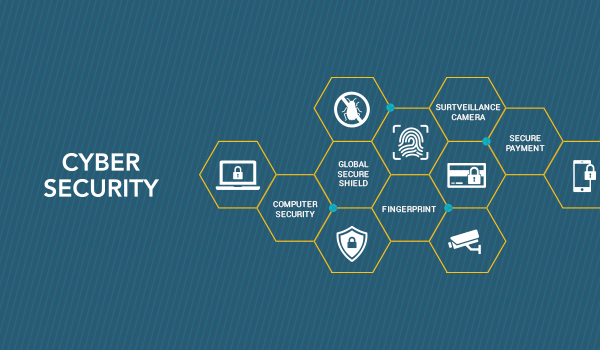In the contemporary business environment dominated by digital technologies, cybersecurity emerges as a foundational element for sustained success and resilience. Preserving confidential data, guaranteeing financial stability, and nurturing customer confidence take center stage in an age marked by persistent cyber threats. The imperative of ensuring seamless operations and gaining a competitive advantage further underscores the indispensability of cybersecurity.

1. Data Protection –
Safeguarding sensitive data and proprietary information is crucial for business integrity. Use robust encryption, strict access controls, and multi-factor authentication. Regularly back up data, protect network security, and provide ongoing security training. Establish an incident response plan, classify data, and enforce security standards with third-party vendors. Stay compliant with regulations, conduct security audits, and monitor systems. Address physical security concerns and continually reassess measures to stay ahead of threats.
2. Financial Security –
Financial security in the face of cyber attacks is a pivotal outcome of effective data protection. To elaborate, implementing strong safeguards not only helps organizations recover more efficiently by reducing the costs associated with restoring compromised systems but also shields against potential legal consequences, including regulatory fines. Moreover, robust data protection measures can positively influence cybersecurity insurance terms, leading to more favorable coverage and lower premiums. By prioritizing data protection, organizations not only bolster their financial resilience but also contribute to maintaining business continuity and safeguarding their reputation against potential losses.
3. Customer Trust –
Building and keeping customer trust relies on a strong commitment to keeping their data safe. First, organizations can build trust by openly sharing strong privacy measures, handling personal info securely, and sticking to privacy practices. Plus, responding quickly and openly to any data issues shows accountability and a dedication to fixing problems. Also, following data protection rules, giving users control over their data, and taking steps to stop breaches all help build trust. In the end, focusing on data security is key to making customers feel confident and keeping their trust intact.
4. Operational Continuity –
To keep businesses running smoothly, strong cybersecurity is essential to prevent disruptions from cyber threats. By bolstering resilience against malicious activities, organizations ensure the availability of critical processes and data. This not only enhances employee productivity and customer satisfaction but also contributes to financial stability by avoiding downtime and recovery costs. In essence, cybersecurity is crucial for maintaining operational continuity and overall business stability.
5. Competitive Advantage
Securing a competitive advantage involves prioritizing cybersecurity to assure partners and customers of a commitment to a safe digital environment. Firstly, by emphasizing robust cybersecurity measures, businesses stand out in the market, building trust and attracting security-conscious customers. Additionally, this commitment not only protects sensitive information but also enhances the overall reputation and trustworthiness of the business. Ultimately, prioritizing cybersecurity becomes a strategic differentiator, providing a competitive edge in the digital business landscape.
Conclusion –
Cybersecurity is essential for business success in the digital age. It safeguards sensitive information, ensures financial stability, and builds customer trust. As a proactive measure, cybersecurity keeps operations running smoothly, giving a competitive edge. It also reassures partners and customers of a strong commitment to a secure digital environment. Recognizing its importance is crucial for ongoing success, emphasizing the need for constant vigilance against emerging threats.